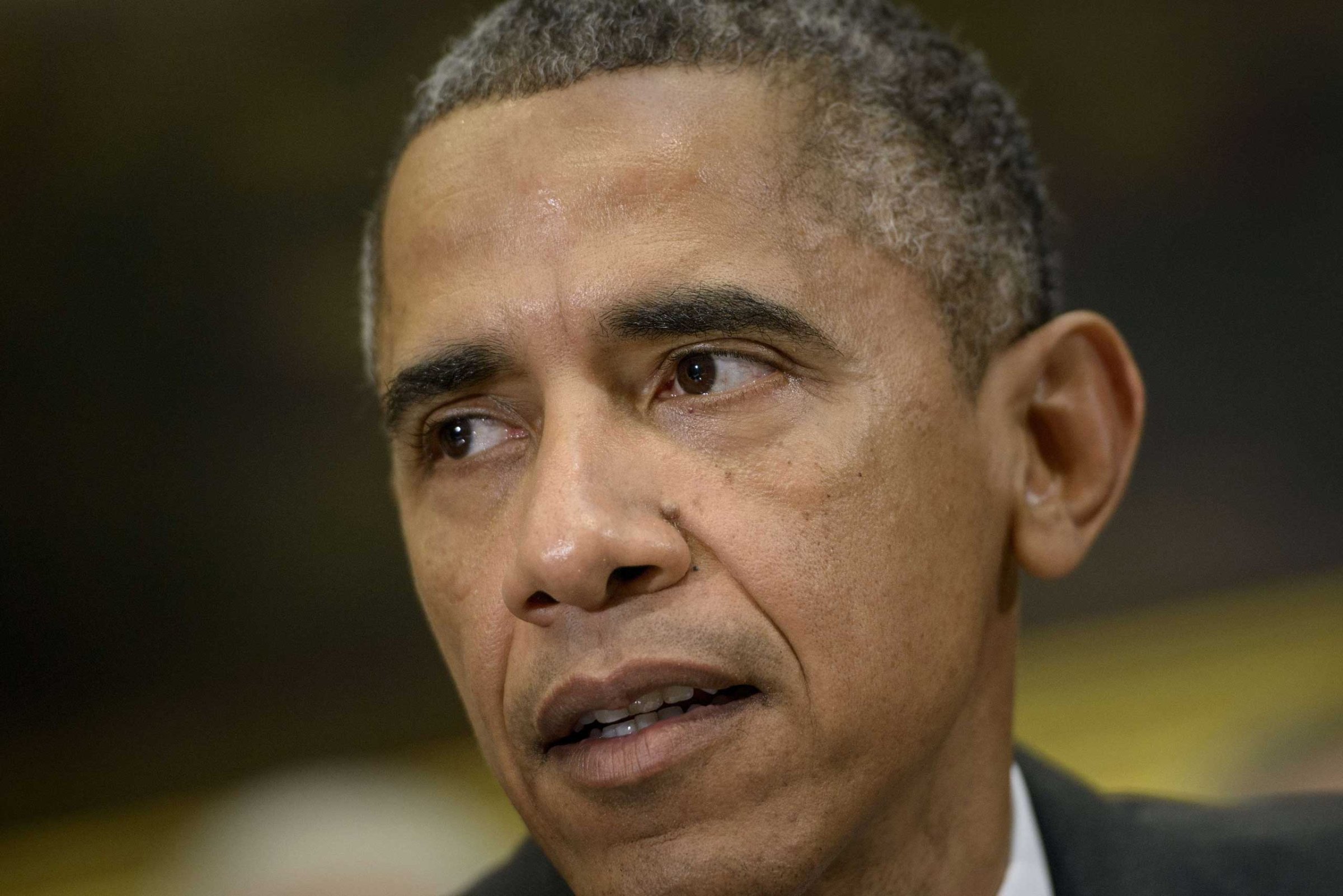
President Obama quietly changed the lives of 20 people on Wednesday, granting what has come to be known as “Christmas clemency” to Americans tangled up in the criminal justice system. But advocates for less punitive sentencing say there’s still much work to be done in order to grant reprieves.
Obama granted 12 pardons to people convicted of various crimes from 1964 to 1997: possession of an unregistered distillery, counterfeiting, and conspiracy to transport a stolen car. Obama also commuted the sentences of eight federal prisoners serving lengthy sentences for drug crimes. None claim to be innocent, but they argued that they’ve served their time. In many cases, the crimes would not have received the same punishment if they were committed today.
It was welcome news for the eight prisoners, who will be out from behind bars by June. One of those who received a commutation was Barbara Scrivner, who has served nearly 20 years of a 30-year sentence for crimes related to methamphetamine. Julie Stewart, president and founder of Families Against Mandatory Minimums says she received an email from Scrivner on Wednesday with at least eight exclamation points expressing her excitement.
“It’s like the river has been frozen and it’s finally breaking up,” says Stewart, whose organization has been working on clemency for nearly two decades.
Still she argues that the water still isn’t quite flowing as it could be.
The U.S. Pardon Attorney’s office has received 15,646 petitions for commutation thus far in Obama’s presidency (since 2009). In 2014 alone, the Pardon Attorney received 6,561 applications. Throughout Obama’s time in office, a total of 6,596 petitions have been denied while only 18 have been granted.
Though Obama has granted more commutations than Presidents Reagan, Bush who commuted 13 and 11 prisoners, respectively, considering how many prisoners are behind bars for nonviolent drug offenses who could qualify for clemency, Doug Berman, a professor of law at Ohio State University, refers the grants like the ones from yesterday “holiday crumbs.”
“If [Obama] does this every day for the rest of his tenure, he can catch up with the backlog,” Berman says.
That’s not to say nothing has been done about it. Legislation to address the sentencing disparities for controlled substances passed Congress early in Obama’s tenure. Expanded sentencing reform has been introduced and several states have already moved to curb the practice of issuing harsh mandatory minimum sentences for some non-violent crimes. The President, through the Department of Justice, has made tackling the harsh sentences drug offenders face as thanks to tough-on-crime laws of the past a priority. New guidelines on sentencing have been issued to judges. And just last year, Obama released the sentences of eight federal crack-cocaine offenders who could have gotten shorter sentences if they were punished under the updated law.
The grants from yesterday also fit neatly into the criteria laid out in the Department of Justice’s clemency initiative of 2014, which prioritizes non-violent, low-level offenders who’ve served at least 10 years, and have no significant criminal history. Legal advocacy groups joined together following that announcement to launch Clemency Project 2014, which has been actively screening inmates for clemency consideration and pairing inmates with attorneys who can help them get applications to the agency. As of Oct. 31, over 25,000 inmates have applied; a little over 5,000 were automatically disqualified.
But, the announcement of that project led many to believe clemency grants would be more regular and substantial. So far, Wednesday’s announcement is all that has come.
At least, it helps that the grants from Wednesday had some teeth to them, says P.S. Ruckman, a political science professor who runs a popular blog on pardons. “These register on the impact scale,” he says, though he still considers Obama among the least merciful Presidents in modern history. Ruckman also notes that while holidays are a nice time for the President to grant pardons and commutations, they don’t have to be the only time.
Ezekiel Edwards, the director of the American Civil Liberties Union’s criminal law project and a member of Clemency Project 2014’s steering committee, said Wednesday’s announcement is definitely encouraging.
“These are the kind of cases or people we have been screening for,” Edwards says. “I hope the President continues to exercise his authority to help more prisoners in the coming months.”
In the end, advocates argue the criminal justice system would be best served if the root problem—the harsh sentences too many nonviolent offenders face—were properly addressed.
“[Clemency] is not the only answer,” Edwards says. “We’re going to continue to look at reforms today so that in 20 years, 30 years, and 40 years we do not have to submit these kind of petitions.”
More Must-Reads from TIME
- Why Trump’s Message Worked on Latino Men
- What Trump’s Win Could Mean for Housing
- The 100 Must-Read Books of 2024
- Sleep Doctors Share the 1 Tip That’s Changed Their Lives
- Column: Let’s Bring Back Romance
- What It’s Like to Have Long COVID As a Kid
- FX’s Say Nothing Is the Must-Watch Political Thriller of 2024
- Merle Bombardieri Is Helping People Make the Baby Decision
Contact us at letters@time.com